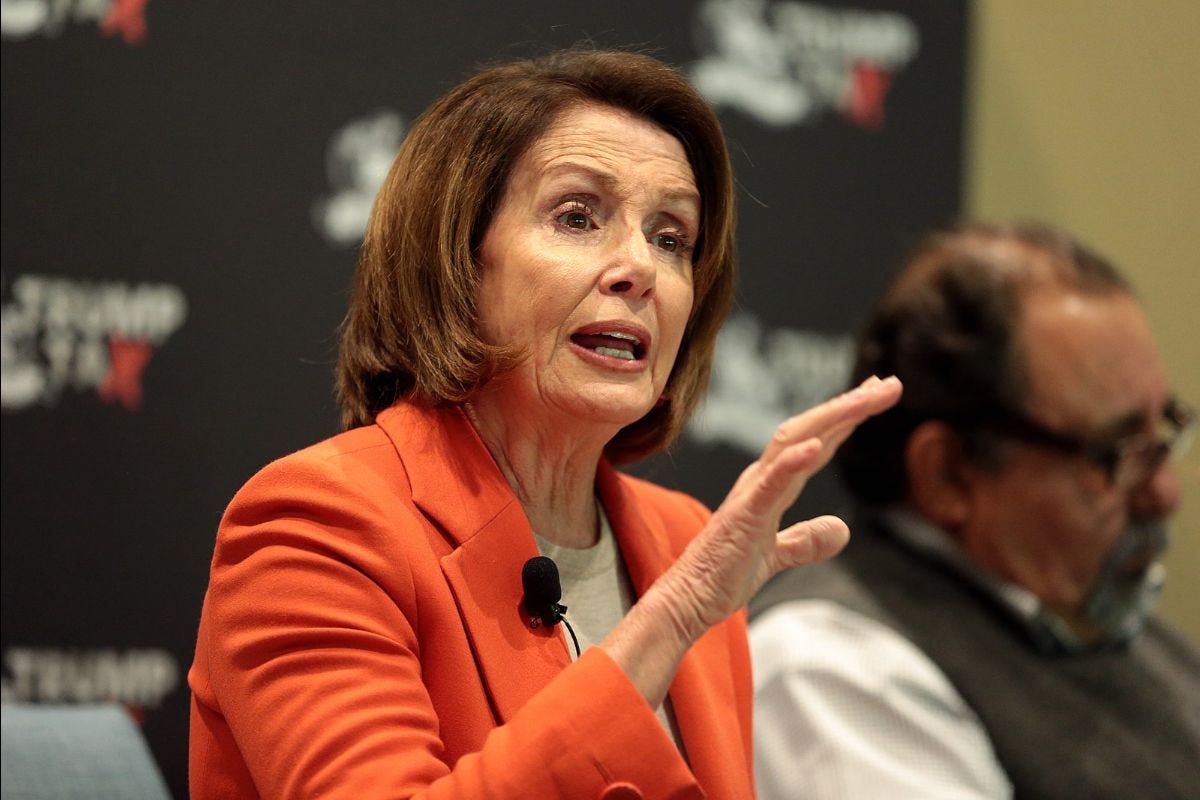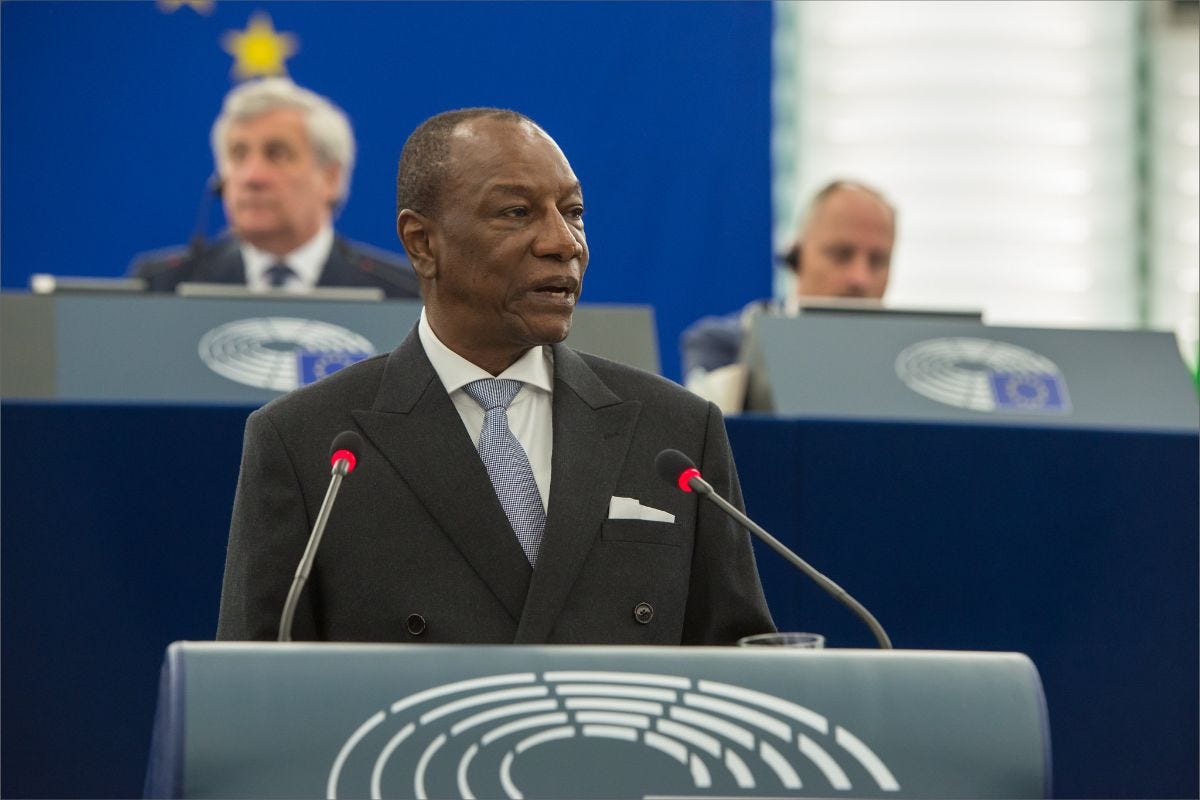Good morning! It’s Wednesday, September 8, 2021. Election Day 2022 is 426 days away. Election Day 2024 is 1,154 days away.
Congress is still on recess, but plans are already beginning to take shape to push the massive Democratic spending package. First, let’s check in with the White House to see how President Biden is planning to rally support for the spending plan in the days ahead.
Later in the newsletter, we’ll bring you the top headlines from around the world — including Afghanistan, Japan, and Guinea. Here we go...
Biden tries to change the subject
With his approval rating dropping, President Joe Biden is seeking to turn the page on a brutal August by steering the conversation back from Afghanistan to more comfortable ground: his domestic agenda.
On Tuesday, Biden ventured to New York and New Jersey to survey damage from Hurricane Ida and warn about the impacts of climate change, which experts say contributed to the extent of Ida’s destruction.
“We got to listen to the scientists and the economists and the national security experts,” Biden said in Queens, New York. “They all tell us this is code red: the nation and the world are in peril. And that’s not hyperbole. That is a fact.”
Later today, the topic at the White House will be unions, as Biden pays homage to his longtime allies in labor with an event that comes just after Labor Day.
And on Thursday, the president will seek to reclaim control over the Covid conversation with a speech that is being described as a major address on the pandemic. According to CNN, “the speech will have multiple components related to schools, private companies, and requirements for federal employees,” taking brand-new steps in each realm to counter the pandemic.
The White House has told reporters that Biden will “lay out a six-pronged strategy” to address this new phase of Covid, “working across the public and private sectors.” The speech is a recognition that Biden’s political fate is closely tied to his ability to get the pandemic under control, one of his signature campaign promises; polls suggest that the new Covid surge is as responsible for his approval ratings dive as the frenzied Afghanistan pullout.

Each of those events this week are part of a public effort to rally support for Biden’s expansive spending plan, which is about to start its slow path through Congress.
As the New York Times put it, the Democratic spending package proposes “a cradle-to-grave reweaving of [the] social safety net,” from paid family leave and universal pre-K to two years of universal community college and offsetting the cost of elder care.
The $3.5 trillion legislation is expected to include provisions addressing climate, labor, and the pandemic — the three issues Biden will be focusing on this week. (Already, on Tuesday, as he warned about the “code red” for climate, he took the opportunity to emphasize the spending bill.)
Biden expressed optimism that the package would be approved — although the rest of Washington is less sure. Asked about Sen. Joe Manchin’s (D-WV) call for a “strategic pause” on the $3.5 trillion package, Biden said Tuesday that the centrist senator would come around. “Joe, at the end, has always been there,” the president told reporters. “He’s always been with me. I think we can work something out and I look forward to speaking with him.”
Despite evidence that Manchin is only moving farther away from supporting the package — per Axios, he is threatening to back no more than $1 trillion in spending — Democratic leaders are remaining publicly sanguine. Asked on Tuesday if the package’s price tag would have to be lowered, House Speaker Nancy Pelosi (D-CA) breezily responded: “Why?”

The spending plan begins to make its way through congressional committees this week, ahead of a September 15 deadline for the panels to put together their assigned portions of the bill. With the economy slipping and unemployment benefits expiring, Democrats view their social safety net expansion as only growing in urgency.
At the same time, Congress is working on another major goal: keeping the government open. The government spending deadline is September 30, and Democrats are seeking to include an increase to the debt limit in the government funding measure as well. (The U.S. technically hit its current borrowing limit on July 31, but is able to use “extraordinary measures” until October to avoid defaulting.)
Republicans have threatened to oppose any efforts to raise the debt ceiling, but the White House unveiled a ploy on Tuesday to try to jam them into supporting the combined funding measure/debt ceiling increase. Acting OMB Director Shalanda Young sent Congress a formal request for the funding bill to include $14 billion for the Hurricane Ida response and $6.4 billion for resettling Afghan refugees.
The move sent a clear message to Republicans representing Louisana and other states hit hard by Ida: oppose funding the government and raising the debt ceiling, and you’ll be opposing aid to your own constituents too. It’s unclear so far if the ploy will work.
Expect to be hearing a lot more about this in the coming weeks as this multi-front legislative battle heats up.
Policy Roundup: Global
On Wednesdays, Wake Up To Politics contributor Miles Hession writes in with the week’s top education headlines:
A coup in Guinea has deposed President Alpha Conde. Conde’s election to the presidency in 2010 looked like a turning point for the nation plagued by decades of a dictatorship. While in office, though, Conde consistently undermined democracy and pushed through a constitutional referendum that allowed him to win a third term of the presidency, amid allegations of election-rigging.
The coup plotters, led by popular Colonel Mamadi Doumbouya, argued that the rampant corruption and authoritarian bent of Conde left the military no other choice but to take control of the government. So far, Doumbouya has received support from opposition politicians in the country.
The international community remained dubious of Doumbouya’s claims and many international organizations and nations, from the U.S. to Russia, have condemned the coup. The ongoing conflict has left regional bodies without a clear path forward and put the future of democracy in Guinea in serious doubt.
After the Taliban announced complete control over Afghanistan, government changes have begun to settle throughout the country. After weeks of violence and fighting, an eerie calm has taken hold in many urban centers. The Taliban announced an acting government made up of known terrorists, further complicating international outreach to the new government. Small protests around the country, many of which were women-led protests for gender equality, have been dispersed, often violently, by the Taliban. Laws requiring women to have male escorts, and enforced gender segregation, as well as other rollbacks on women’s rights have been introduced by the new government.
While some have welcomed the end of the fighting, growing concerns over human rights — as well as food and medicine shortages — have lead many to fear that Afghanistan is only seeing the beginning of a massive humanitarian crisis.
Japanese Prime Minister Yoshihide Suga has resigned in response to months of sinking popularity. Suga took over from former Prime Minister Shinzo Abe, who retired due to health concerns last September. Suga was plagued by a lagging vaccination problem and the decision to allow the Tokyo Olympics to continue despite surging Covid cases, damaging his reputation with the Japanese public.
His party, the Liberal Democrats, is expected to win in the upcoming general election, but the resignation served a blow to the Biden administration’s foreign policy aims in East Asia, as Biden has spent months now cultivating a partnership with Suga.

More global headlines, via Miles
Mexico’s Supreme Court has decriminalized abortion, paving the way towards national legalization.
In the largest demonstration yet, 500,000 farmers in India gathered to continue protests against Prime Minister Narendra Modi’s new agriculture legislation.
Thousands of Boko Haram fighters surrendered in Nigeria in recent weeks. While the government lauds this as a military victory, analysts are concerned about future gains for the Islamic State in West African Province, the rival terrorist group known as ISWAP.
North Korean dictator Kim Jong-Un called for urgent action on climate change following last year’s devastating typhoons.
Daybook
What’s happening in Washington today. (All times Eastern)
Executive Branch
→ President Joe Biden will receive his daily intelligence briefing at 10 a.m. before delivering remarks at 11:2o a.m. in honor of labor unions. At 2:45 p.m., Biden will receive a briefing on the state of the pandemic and vaccinations.
→ Vice President Kamala Harris will travel to California at 9:05 a.m. to campaign for Gov. Gavin Newsom (D-CA), who is facing a recall attempt. At 3:40 p.m., she will participate in an event for Newsom at the IBEW-NECA Joint Apprenticeship Training Center in San Leandro, California. At 5:30 p.m., she will depart California to return to Washington, D.C.
→ White House Press Secretary Jen Psaki will hold her daily press briefing at 2 p.m. She will be joined by Agriculture Secretary Tom Vilsack and National Economic Council Director Brian Deese.
Legislative Branch
→ The Senate is on recess until September 13.
→ The House is on recess until September 20.
→ House Speaker Nancy Pelosi will hold her weekly press conference at 9:45 a.m. at the Capitol. Later, she will participate in an event celebrating the Child Tax Credit at 3 p.m. in Hartford, Connecticut, and receive an honorary degree at Smith College in Northampton, Massachusetts, at 8 p.m.
Judicial Branch
→ The Supreme Court is on recess until October 4.
Thanks for waking up to politics! If you enjoy reading this newsletter, I’d be so grateful if you’d consider donating to help support me and my work. If you want to show off your support for Wake Up To Politics, you can also buy some merchandise.
Also: don’t forget to tell your friends and family to sign up for the newsletter using your unique referral link. And if you have any questions or comments, feel free to email me at any time.






